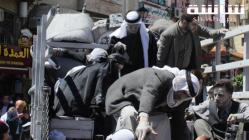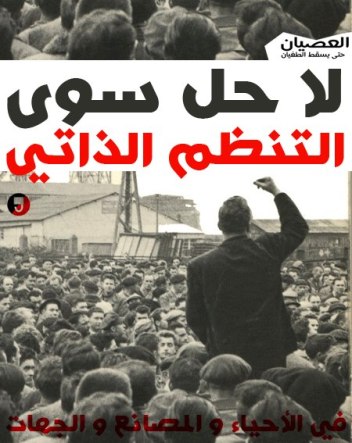The main story in Ramallahstan those days is what happened with Amira Hass in Beirzeit university few days ago.
Long story short, Amira Hass, was invited to talk in Beirzeit university. A group of student protested and kicked her out.
Some people came out in support of the students, while others choose to throw the “She is more Palestinian than Palestinians” line.

First, lets explain who is Amira Hass!?
Amira Hass is an Israeli journalist, lives in Ramallah, and write for the Zionist newspaper, Haaretz, no more no less.
She is not more Palestinian than Palestinians, nor she is a spy “Spy on what?“. She is a journalist who choose to live close to the main topic she covers, which is Palestine and the Palestinians.
Like Robert Fisk, the British journalist who choose to live in Lebanon to be close to the Middle East, the region/topic he covers, Does this make hime a supporter to the Arab cause?
PS: I mentioned what is relevant, for more info about her, click here
Second, Amira Hass is an Israeli by birth, she belong to the colonial oppressive system Palestinians have been suffering from for the last 60+ years, she also write for a Zionist newspaper, who sometimes sound progressive, yet still strongly serves the Zionist colonial project in Palestine.
Do I really need to explain why people who live under colonial regime tend to be hostile towered those who belong to the “Colonial Master” nation!? I thought this should be obvious by now.
Third, “She is more Palestinian than some Palestinians”.
1- Who the gave you the right to say whose Palestinian and whose not!?
2- If every journalist who cover Palestine fairly will become more Palestinian than Palestinian, I can think of a long list of names before Hass.
3- Did you answer the question in the first point? Regardless to your answer, No one have the right, to say whose Palestinian and whose not. No one have this right, not even Mahmoud Abbas himself, “He is after all the head of PLO and the PA, which suppose to represent all Palestinian everywhere”
Finally, It’s important to remember that Amira Hass is simply a journalist, who maybe take the ethics of journalism more seriously than the usual propaganda tools in other Israeli media outlets. She is not a pro-Palestine, solidarity activist nor she is here because she loves us!
I find it sad, that our experience with good and fair journalism is very limited, we consider whoever write a decent story, an allies to our struggle.
Also we can’t abandon the fact that Amira Hass, regardless to her impressive journalistic work belong to the other side, and this is something we can’t ignore or overcome, at least not now.
The Israelis can walk around and say “It’s not personal, it’s politic”. This is a privilege we don’t have, it’s personal for each and everyone of us.
I hope her commitment to fair journalism, not to Palestine is beyond what happened in Beirzeit.




